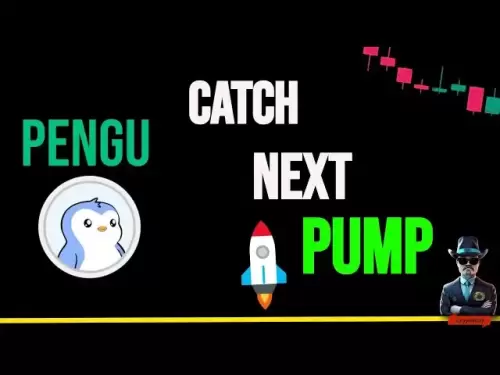-
 Bitcoin
Bitcoin $106,782.3966
-0.72% -
 Ethereum
Ethereum $2,406.7764
-1.16% -
 Tether USDt
Tether USDt $1.0005
0.02% -
 XRP
XRP $2.0918
-1.53% -
 BNB
BNB $644.5785
-0.17% -
 Solana
Solana $141.0925
-0.69% -
 USDC
USDC $1.0000
0.02% -
 TRON
TRON $0.2721
0.18% -
 Dogecoin
Dogecoin $0.1585
-1.26% -
 Cardano
Cardano $0.5497
-1.14% -
 Hyperliquid
Hyperliquid $35.8493
-1.58% -
 Bitcoin Cash
Bitcoin Cash $502.3089
2.20% -
 Sui
Sui $2.7092
3.87% -
 Chainlink
Chainlink $12.8551
-1.85% -
 UNUS SED LEO
UNUS SED LEO $9.0548
0.53% -
 Stellar
Stellar $0.2344
-0.85% -
 Avalanche
Avalanche $17.2676
-0.23% -
 Toncoin
Toncoin $2.8282
0.56% -
 Shiba Inu
Shiba Inu $0.0...01113
-1.14% -
 Litecoin
Litecoin $83.9593
-0.93% -
 Hedera
Hedera $0.1447
0.82% -
 Monero
Monero $306.9022
-2.07% -
 Bitget Token
Bitget Token $4.6358
3.42% -
 Dai
Dai $0.9999
0.01% -
 Ethena USDe
Ethena USDe $1.0001
0.02% -
 Polkadot
Polkadot $3.3211
0.06% -
 Uniswap
Uniswap $6.8775
0.75% -
 Pi
Pi $0.5664
-0.27% -
 Aave
Aave $256.0055
1.28% -
 Pepe
Pepe $0.0...09013
-3.24%
How to transfer money with an ETH wallet address? Detailed explanation of handling fees and arrival time
To send ETH, set up a wallet like MetaMask, enter the recipient's address, specify the amount, and set the gas fee; transaction time varies based on network conditions.
May 13, 2025 at 02:42 am
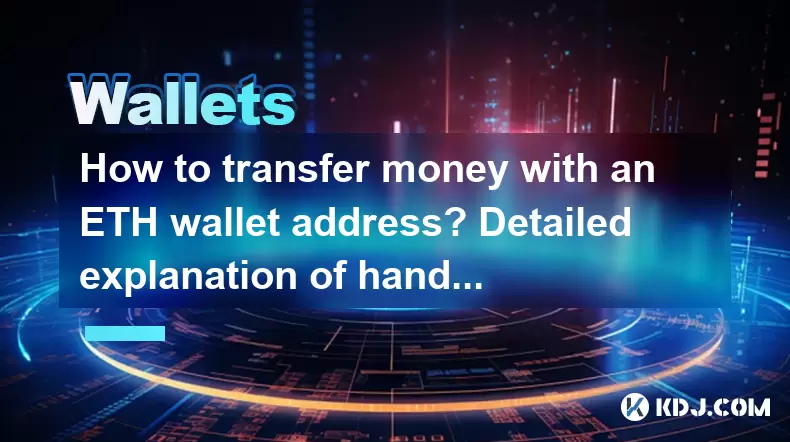
Transferring money using an Ethereum (ETH) wallet address is a straightforward process, yet it involves understanding certain key aspects such as handling fees and the expected arrival time of the transaction. In this detailed guide, we will walk you through the steps required to successfully send ETH, explain the intricacies of transaction fees, and discuss the factors that influence the time it takes for the transaction to be confirmed on the Ethereum blockchain.
Setting Up Your ETH Wallet
Before you can transfer ETH, you need to set up an Ethereum wallet. There are various types of wallets available, including software wallets (like MetaMask or Trust Wallet), hardware wallets (like Ledger or Trezor), and even paper wallets. For this guide, we will assume you are using a software wallet like MetaMask.
- Download and install the wallet software from the official website.
- Create a new wallet by following the on-screen instructions. You will be asked to set a strong password and save your recovery phrase (also known as a seed phrase) in a secure location.
- Fund your wallet with ETH. You can purchase ETH from a cryptocurrency exchange and then transfer it to your wallet address.
Initiating a Transfer
Once your wallet is set up and funded, you can proceed with transferring ETH to another address.
- Open your wallet and navigate to the "Send" or "Transfer" section.
- Enter the recipient's ETH address in the designated field. Double-check the address to avoid sending funds to the wrong recipient, as Ethereum transactions are irreversible.
- Specify the amount of ETH you wish to send. Make sure you have enough ETH in your wallet to cover both the amount you're sending and the transaction fee.
- Set the transaction fee. This step is crucial and will be discussed in detail in the next section.
- Review the transaction details and confirm the transfer. You may be prompted to enter your wallet password to authorize the transaction.
Understanding Transaction Fees
Transaction fees, also known as gas fees, are an essential part of the Ethereum network. They incentivize miners to include your transaction in the next block. The fee is determined by two main components: gas price and gas limit.
- Gas price is the amount of ETH you are willing to pay per unit of gas. It is typically measured in Gwei (1 Gwei = 0.000000001 ETH). A higher gas price increases the chances of your transaction being processed quickly.
- Gas limit represents the maximum amount of gas you are willing to use for your transaction. For a simple ETH transfer, the gas limit is usually set to 21,000 units.
To calculate the total transaction fee, you multiply the gas price by the gas limit. For example, if the gas price is 20 Gwei and the gas limit is 21,000, the total fee would be 0.00042 ETH.
Factors Affecting Transaction Fees
Several factors can influence the transaction fee you need to pay:
- Network congestion: During periods of high demand, such as when new tokens are being launched or when there is significant market activity, the gas price can increase significantly.
- Transaction priority: If you want your transaction to be processed quickly, you may need to pay a higher gas price to outbid other transactions in the network.
- Wallet settings: Some wallets automatically set the gas price based on current network conditions, while others allow you to manually adjust it.
Estimating Transaction Arrival Time
The time it takes for an ETH transaction to be confirmed on the blockchain can vary widely. Here are the key factors that influence the arrival time:
- Gas price: As mentioned earlier, a higher gas price can lead to faster transaction processing. Transactions with higher fees are prioritized by miners.
- Network congestion: During times of high network activity, transactions may take longer to be confirmed. Conversely, during periods of low activity, transactions can be processed more quickly.
- Number of confirmations: A transaction is considered confirmed after it has been included in a block. However, for added security, it is often recommended to wait for multiple confirmations. The more confirmations, the more secure the transaction.
Typically, an ETH transaction can take anywhere from a few seconds to several minutes to be confirmed. However, during peak times, it may take longer.
Monitoring Your Transaction
After initiating a transfer, you can monitor its progress using a blockchain explorer like Etherscan.
- Copy the transaction hash provided by your wallet after the transaction is sent.
- Visit a blockchain explorer and paste the transaction hash into the search bar.
- Check the transaction status to see if it has been confirmed and how many confirmations it has received.
Frequently Asked Questions
Q: Can I cancel an ETH transaction after it has been sent?
A: Once an ETH transaction is broadcast to the network, it cannot be canceled. However, if the transaction has a low gas price and is taking a long time to be confirmed, you can attempt to speed it up by sending a new transaction with a higher gas price to the same recipient.
Q: What happens if I set the gas limit too low for my transaction?
A: If the gas limit is set too low, the transaction may fail to execute. In such cases, you will lose the gas fee, but the ETH you attempted to send will remain in your wallet.
Q: Is it possible to send ETH to a non-ETH address?
A: No, you cannot send ETH to a non-ETH address. Each cryptocurrency has its own unique address format, and sending ETH to an address that is not compatible with the Ethereum network will result in the loss of funds.
Q: How can I reduce my transaction fees on the Ethereum network?
A: To reduce transaction fees, you can wait for periods of low network congestion and set a lower gas price. Some wallets also offer features like gas price optimization, which can help you find the right balance between cost and speed.
Disclaimer:info@kdj.com
The information provided is not trading advice. kdj.com does not assume any responsibility for any investments made based on the information provided in this article. Cryptocurrencies are highly volatile and it is highly recommended that you invest with caution after thorough research!
If you believe that the content used on this website infringes your copyright, please contact us immediately (info@kdj.com) and we will delete it promptly.
- Smart Investors Navigate the AI Token Frenzy: Bitcoin Switch and Beyond
- 2025-06-28 12:30:12
- Crypto in 2025: How Web3 AI is Poised to Dominate
- 2025-06-28 12:30:12
- Solana's Support Level Holds as MACD Crossover Hints at Potential Bullish Reversal
- 2025-06-28 12:50:12
- Cathie Wood's Ark Invest: Navigating Coinbase (COIN) and SoFi (SOFI) in a Shifting Market
- 2025-06-28 12:53:43
- Crypto 2025: Spotting the Top Coins with Real Utility
- 2025-06-28 12:42:12
- Pepe Price's Wild Ride: Cryptocurrency Milestone or Just Another Meme?
- 2025-06-28 12:42:13
Related knowledge

How to stake cryptocurrencies on Coinbase? Benefits and risks
Jun 27,2025 at 06:36pm
Understanding Cryptocurrency Staking on CoinbaseStaking cryptocurrencies involves locking up digital assets to support the operations of a blockchain network, typically in return for rewards. Coinbase, one of the most popular cryptocurrency exchanges globally, offers staking services for several proof-of-stake (PoS) coins. Users can stake their holdings...
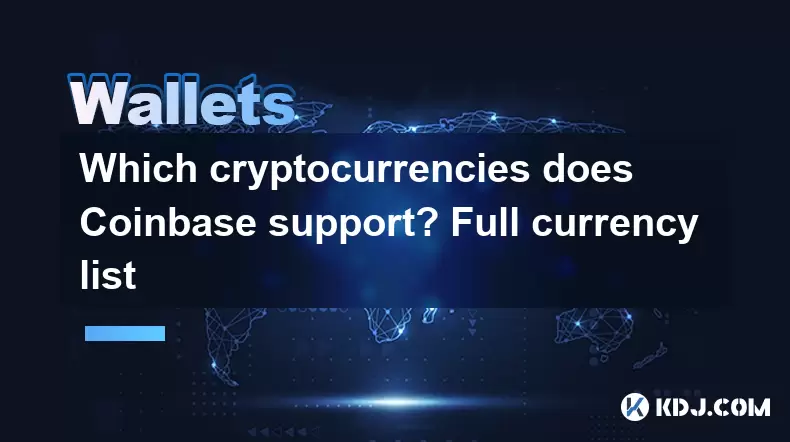
Which cryptocurrencies does Coinbase support? Full currency list
Jun 28,2025 at 08:36am
Overview of Cryptocurrencies Supported by CoinbaseCoinbase is one of the most popular and trusted cryptocurrency exchanges globally. It provides users with a platform to buy, sell, trade, and store various digital assets. As of the latest updates, Coinbase supports over 200 cryptocurrencies, including major ones like Bitcoin (BTC), Ethereum (ETH), and L...
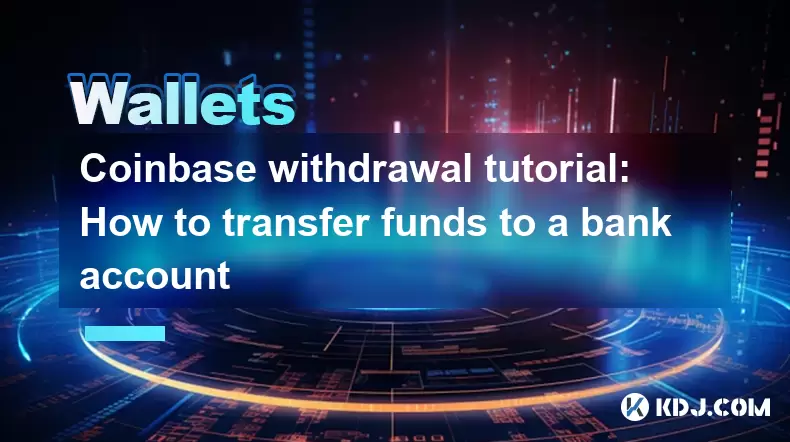
Coinbase withdrawal tutorial: How to transfer funds to a bank account
Jun 28,2025 at 02:35am
Understanding Coinbase WithdrawalsCoinbase is one of the most widely used cryptocurrency platforms, allowing users to buy, sell, and store digital assets. Once you've successfully traded or held your crypto on Coinbase, the next logical step may be to withdraw funds to a bank account. This process involves converting your cryptocurrency into fiat curren...
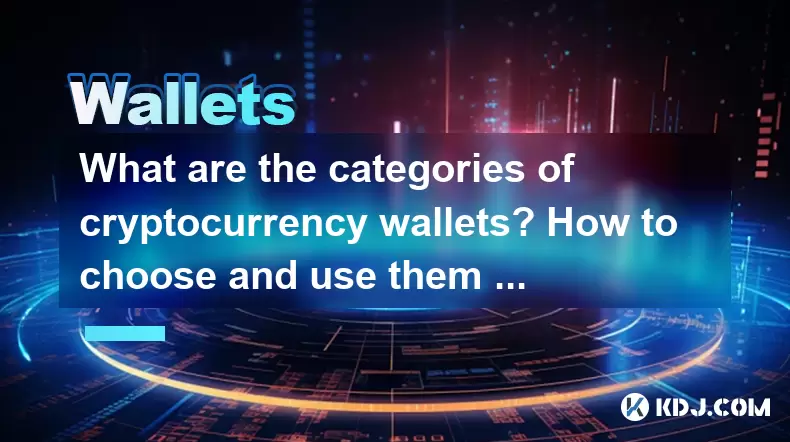
What are the categories of cryptocurrency wallets? How to choose and use them safely?
Jun 21,2025 at 10:42pm
Understanding Cryptocurrency WalletsCryptocurrency wallets are essential tools for anyone involved in the digital asset ecosystem. They allow users to store, send, and receive cryptocurrencies securely. Unlike traditional wallets that hold physical money, crypto wallets manage cryptographic keys—private and public—which interact with blockchain networks...
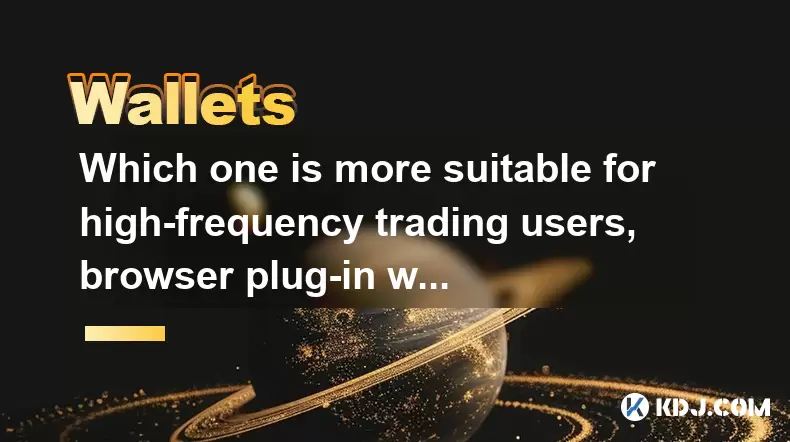
Which one is more suitable for high-frequency trading users, browser plug-in wallets or independent application wallets?
Jun 23,2025 at 08:22am
Understanding the Role of Wallets in High-Frequency TradingFor high-frequency trading (HFT) users in the cryptocurrency market, wallet selection is critical due to the need for speed, security, and seamless integration with trading platforms. HFT involves executing a large number of trades within seconds or even milliseconds, which demands a wallet that...

What are the differences between the operating mechanisms of on-chain wallets and off-chain wallets? Is there a big difference in transaction fees?
Jun 25,2025 at 08:49am
Understanding On-Chain WalletsOn-chain wallets are digital wallets that directly interact with the blockchain network. These wallets store users' private keys, which are essential for signing and authorizing transactions on the blockchain. When using an on-chain wallet, every transaction must be recorded and verified by the decentralized nodes in the ne...

How to stake cryptocurrencies on Coinbase? Benefits and risks
Jun 27,2025 at 06:36pm
Understanding Cryptocurrency Staking on CoinbaseStaking cryptocurrencies involves locking up digital assets to support the operations of a blockchain network, typically in return for rewards. Coinbase, one of the most popular cryptocurrency exchanges globally, offers staking services for several proof-of-stake (PoS) coins. Users can stake their holdings...

Which cryptocurrencies does Coinbase support? Full currency list
Jun 28,2025 at 08:36am
Overview of Cryptocurrencies Supported by CoinbaseCoinbase is one of the most popular and trusted cryptocurrency exchanges globally. It provides users with a platform to buy, sell, trade, and store various digital assets. As of the latest updates, Coinbase supports over 200 cryptocurrencies, including major ones like Bitcoin (BTC), Ethereum (ETH), and L...

Coinbase withdrawal tutorial: How to transfer funds to a bank account
Jun 28,2025 at 02:35am
Understanding Coinbase WithdrawalsCoinbase is one of the most widely used cryptocurrency platforms, allowing users to buy, sell, and store digital assets. Once you've successfully traded or held your crypto on Coinbase, the next logical step may be to withdraw funds to a bank account. This process involves converting your cryptocurrency into fiat curren...

What are the categories of cryptocurrency wallets? How to choose and use them safely?
Jun 21,2025 at 10:42pm
Understanding Cryptocurrency WalletsCryptocurrency wallets are essential tools for anyone involved in the digital asset ecosystem. They allow users to store, send, and receive cryptocurrencies securely. Unlike traditional wallets that hold physical money, crypto wallets manage cryptographic keys—private and public—which interact with blockchain networks...

Which one is more suitable for high-frequency trading users, browser plug-in wallets or independent application wallets?
Jun 23,2025 at 08:22am
Understanding the Role of Wallets in High-Frequency TradingFor high-frequency trading (HFT) users in the cryptocurrency market, wallet selection is critical due to the need for speed, security, and seamless integration with trading platforms. HFT involves executing a large number of trades within seconds or even milliseconds, which demands a wallet that...

What are the differences between the operating mechanisms of on-chain wallets and off-chain wallets? Is there a big difference in transaction fees?
Jun 25,2025 at 08:49am
Understanding On-Chain WalletsOn-chain wallets are digital wallets that directly interact with the blockchain network. These wallets store users' private keys, which are essential for signing and authorizing transactions on the blockchain. When using an on-chain wallet, every transaction must be recorded and verified by the decentralized nodes in the ne...
See all articles





















